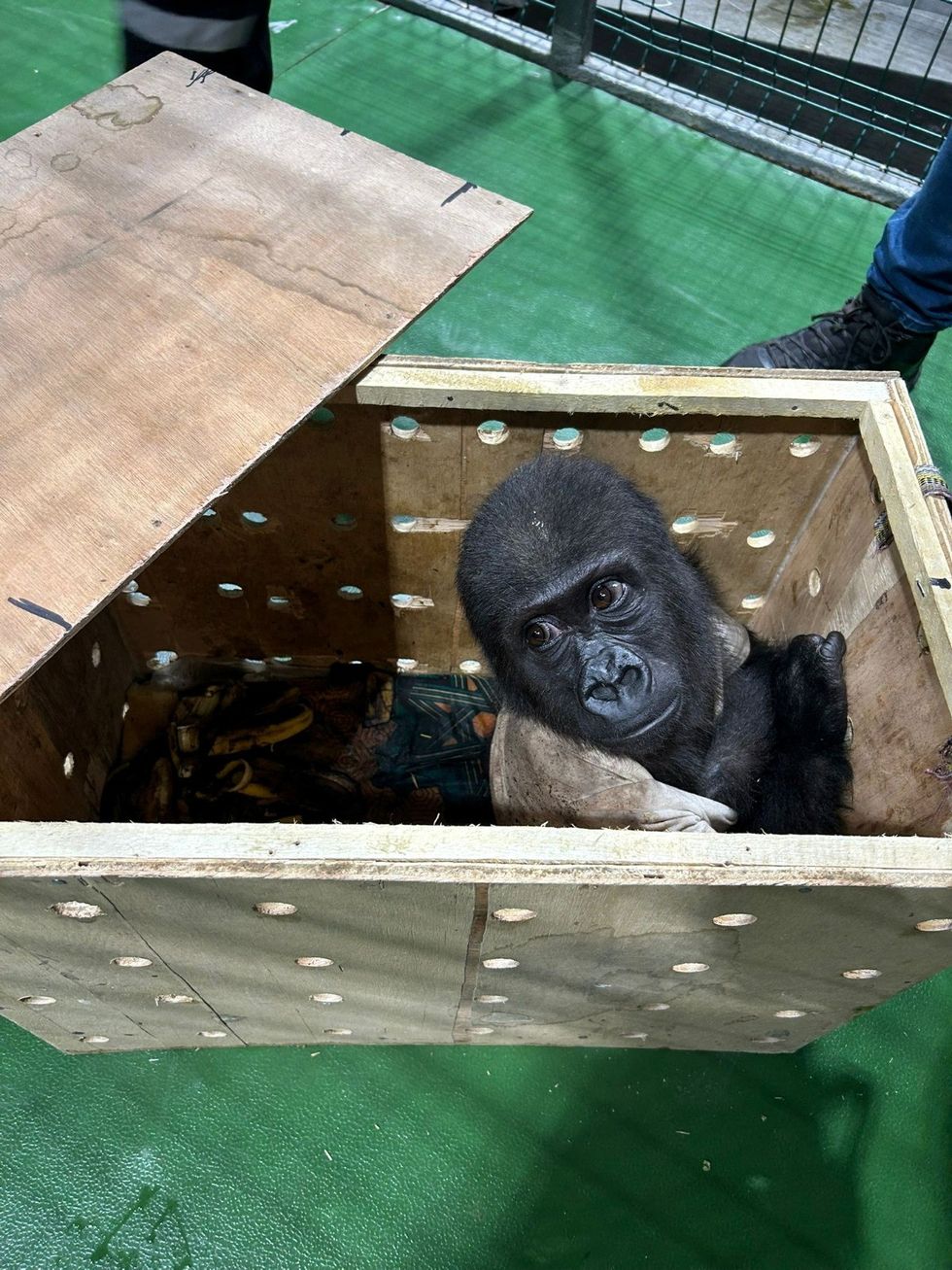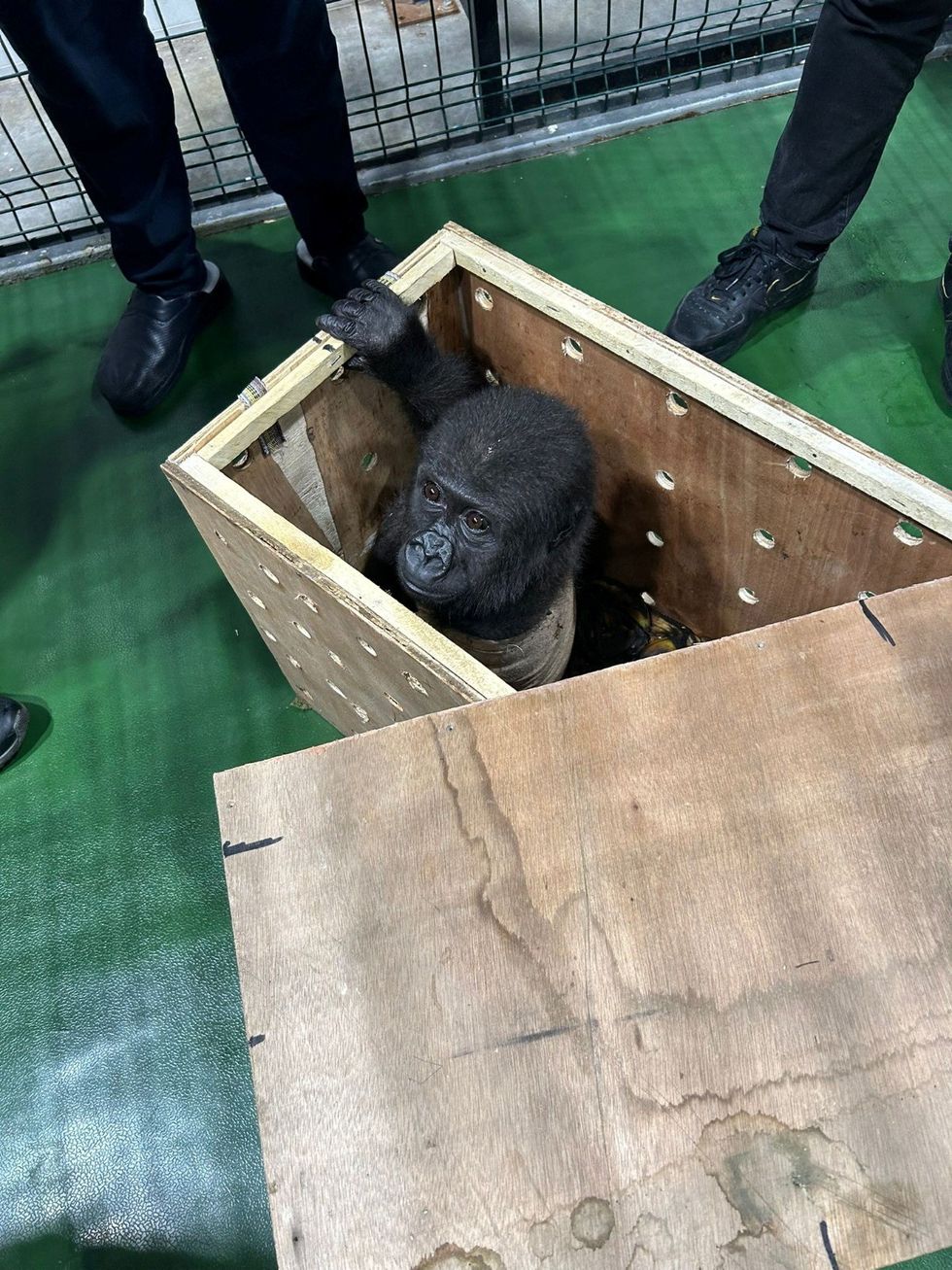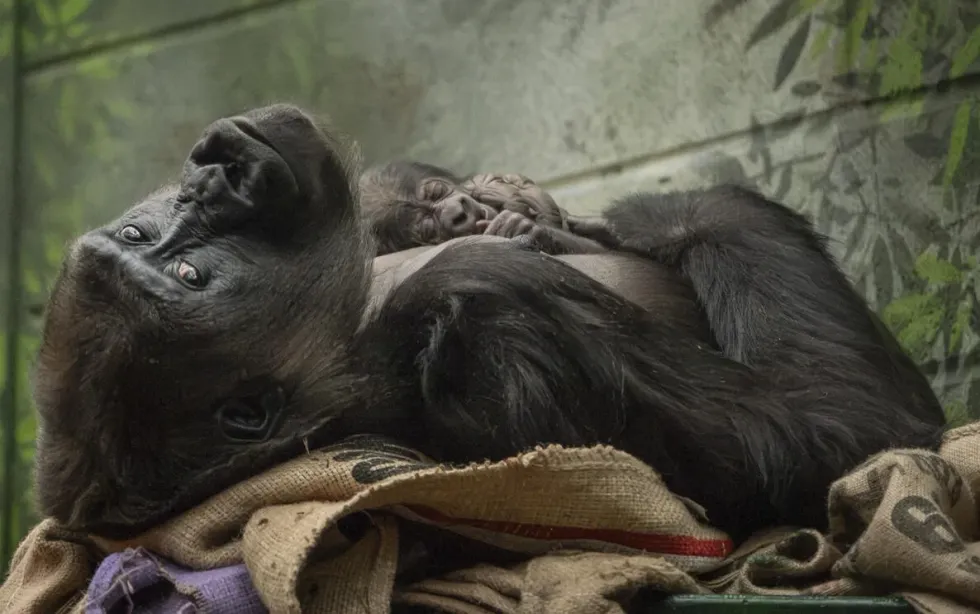An endangered baby gorilla has been discovered inside a small wooden crate at Istanbul Airport in Turkey.
The gorilla was found wearing a T-shirt when it was spotted within a cargo shipment from Nigeria that was on its way to Bangkok, Thailand.
Customs enforcement teams from the Ministry of Trade identified the animal as the baby Western lowland gorilla – an endangered species facing the highest risk of extinction.
After it was rescued, the baby gorilla was transferred to the Ministry of Agriculture and Forestry’s care units, Turkish media has reported.

Customs enforcement teams from the Ministry of Trade identified the animal as the baby Western lowland gorilla
Reuters
The Convention on International Trade in Endangered Species of Wild Fauna and Flora (CITES) says international trade of endangered species is only allowed in exceptional circumstances, for example for scientific research.
A spokesman for the ministry said: “The little one is doing well. It was confiscated during customs checks while being illegally transported without proper documentation.
“The General Directorate of Nature Conservation and National Parks personnel are providing rehabilitation and necessary care.”
“The gorilla remains under close observation to ensure its recovery,” they added.
MORE ANIMAL NEWS:
 The gorilla was found wearing a T-shirt when it was spotted within a cargo shipment from Nigeria Reuters
The gorilla was found wearing a T-shirt when it was spotted within a cargo shipment from Nigeria ReutersThe spokesman also said that rehabilitation experts are working with the gorilla to help it regain its strength.
“Their care aims to provide a safe environment for the animal’s well-being,” they added.
Earlier this year, London Zoo welcomed a critically endangered Western lowland baby gorilla after a landmark birth.
Mother Mjukuu gave birth to the tiny infant at the conservation zoo after 17-minutes of labour.
 Mjukuu holding her newbornLONDON ZOO
Mjukuu holding her newbornLONDON ZOOThe new Western lowland gorilla was born at 9.34am on January 17 following an eight-and-a-half-month pregnancy.
Western lowland gorillas have been noted as critically endangered as a result of poaching and disease.
The situation resulted in their wild numbers declining by more than 60 per cent over the last 25 years.
The primate, which counts forest areas as its natural habitat, is native to Cameroon, Central African Republic, Gabon, Congo and Equatorial Guinea.